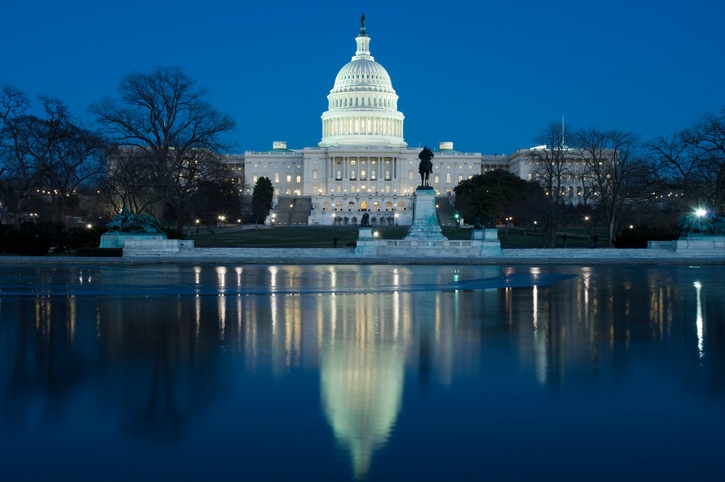Congress Itself is in Breach of the Constitution
Share
By Hillsdale College Online Courses March 17, 2017
Dr. Pestritto notes that since Article 1, Section 1 of the Constitution vests all legislative power in Congress, even delegation of that power is in fact a breach of constitutional practice. The growth of the administrative state is not only a result of an overreaching executive branch, but also a result of Congress’s unwillingness to reclaim, using the power of the purse, its constitutional responsibility.
The following video is a clip from Hillsdale’s Online Course: “Public Policy from a Constitutional Viewpoint,” featuring Ronald J. Pestritto, the Charles and Lucia Shipley Professor in the American Constitution, and John J. Miller, director of the Dow Journalism Program.
Transcript:
John J. Miller:
Let's turn to the Constitution. I want to read a line from it. It's almost the first line in the Constitution because it’s Article 1 Section 1. It says, "All legislative Powers herein granted shall be vested in a Congress of the United States." The word "all" seems to matter. I'm going to read it again. "All legislative Powers herein granted shall be vested in a Congress of the United States." Does this suggest that the law making powers of the Administrative State within the Executive Branch are unconstitutional?
Ronald J. Pestritto:
I would argue that they are unconstitutional. I would argue that the Administrative State as it exists today and as it operates, largely operates in defiance of the Constitution. You, I think, read the precise passage to focus on in the Constitution. There are no legitimate powers of government in our Republic other than those which the people, through the Constitution, give to 1 of the 3 branches of government. The lawmaking power, the power to make general rules that are generally applicable, they're proscriptive. That is only given by the people, through the Constitution, to Congress.
Furthermore if you look at the legislative powers that are listed later in Article 1, nowhere does it say that one of the powers of Congress is to take their legislative power and give it or distribute it to a different branch. One of the reasons—I would say the main reason—you have an administrative state today, the thing without which the administrative state could not exist, is delegation. [It’s] the idea that Congress delegates its lawmaking power to the executive branch. If the courts don't allow that in the 1930s, and I've pointed to some of the cases where that happened, you don't have the situation that we're in today.
John J. Miller:
That would be a doozy at the Supreme Court ruling wouldn't it?
Ronald J. Pestritto:
Yes. There are some Constitutional Conservatives of course who sort of dream that one day the Supreme Court will wake up and will strike down delegation and therefore the way in which most administrative agencies make policy. That's not going to happen, I think, in a realistic sense of things. I also, more seriously, think it's a mistake for Constitutionalists to look to the courts to do by the stroke of a pen or a decision or a series of decisions, to put the Administrative State back in its place. If you think about how the Administrative State exists, it exists simply because Congress has created it. These are agencies that are created by Congress, they're empowered by Congress, they're funded by Congress.
If we think that this is a problem now, that so much policy is made by unaccountable agency staff as opposed to by elected lawmakers, if we think that's an issue, it is entirely within the power of those elected lawmakers, the people whom we vote for, to recapture some of that. I don't want to suggest anything fanciful or unrealistic where all the sudden all these agencies are going to go away. I know presidential candidates like to talk like that a lot. It's certainly reasonable to expect that Congress could start to draw back some of the specifics of policy to itself. It could do that through funding in addition to taking back some of the regulatory power.

